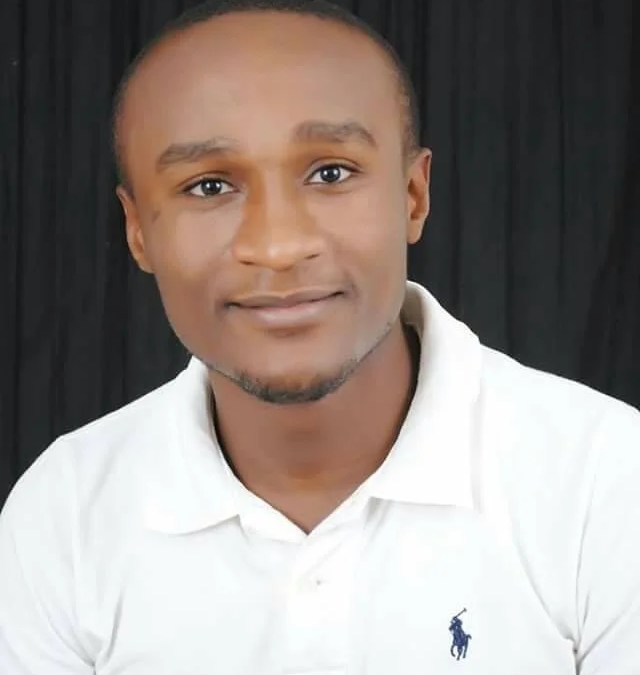
MY DAUGHTER IN AN IRON PANTY by Olusegun Ogunmola

MY DAUGHTER IN AN IRON PANTY
by Olusegun Ogunmola


MY DAUGHTER IN AN IRON PANTY
by Olusegun Ogunmola

Author Spotlight On Chinua Achebe

Arguably the greatest novelist to ever come from the black continent, Chinualumogu “Chinua” Achebe is a towering figure who needs no introduction whatsoever. With the African Trilogy and his Man Booker International Prize win, Achebe has cemented his name in the soil of time. It’s no surprise that the maiden edition of our “Author Spotlight” starts with the unraveling of an African literary sage of his ilk. However, with all his numerous accomplishments, it is easy to overlook certain significant events which occurred within his lifetime.

Chinua Achebe
Photo accessed via WW Norton
Magnum Opus Dei – Things Fall Apart
Achebe’s first novel, Things Fall Apart, which was published two years before he turned 30 provided the blueprint for African literature. The novel paints the influence of colonialism in Nigeria in a picturesque style garnished with a stint of the Igbo culture. It excavated the realities behind the scene but the truth about the conflict between the Igbo tradition and the Christian doctrines. It is often considered as his best work and most widely read book in modern African literature. The language, the style and the uniqueness of the book made it a household name in many African homes. The universality and relevance of the book are second to none in African literature; it presents echoes from our past, shows us the details of the present anomalies on the canvas and shares in lucid ways what the future holds.
Despite being the book which began a cultural renaissance of enhancing the visibility of Africans in global literature, “Things Fall Apart” was upon publication generally ridiculed in West Africa. The book has sold over 20 million copies around the world and translated into 57 languages making Achebe the most translated African writer of all time.
Contemporaries
Achebe was a writer of global relevance despite having his roots in the African heritage, his wide span of contemporaries contains literary titans from different corners of the world. The list is not limited to these outstanding writers and poets: Margaret Atwood, Wole Soyinka, Kofi Awoonor, Christopher Okigbo, Ngugi wa Thiong’o, Nadine Gordimer, J.P. Clark, Ferdynand Oyono, Toni Morrison, Maya Angelou, Robert Gibson and Okot p’Bitek. His vast influence earned him the worldwide respect of fellow writers at the peak of his career and even after that.
Awards
A global celebrity, Achebe, received over 30 honorary degrees from universities in England, Scotland, South Africa, United States and others.
Achebe twice refused the honor of the Commander of the Federal Republic of Nigeria, citing the chaotic socio-political atmosphere in the country, particularly his home-state as the reason.

Chinua Achebe
Photograph accessed via New York Times
The book, Things Fall Apart, has sold over 20 million copies around the world and translated into 57 languages making Achebe the most translated African writer of all time.
Controversies
Despite his achievements, Achebe never won the Nobel Prize – a phenomenon which has widely been condemned. He has himself been ambivalent in his own feelings about this.
Following a lecture at Amherst in February 1975, during which he accused Joseph Conrad’s much-beloved book “Heart of Darkness” as promoting racist narratives of Africa, Achebe became the object of academic outrage, particularly from the white academia. In fact, immediately after his speech, it has been reported that a professor walked right up to him, screaming: How dare you! Achebe would later stand by his criticism till his death.
Death
At age 60, Chinua Achebe was involved in a ghastly motor accident which left him partially disabled for the rest of his life. The literary icon passed on during his time in the United States on March 21, 2013, at the age of 82.

Chinua Achebe and Wole Soyinka
Photograph accessed via Opinion Nigeria
Literary Works
Before we conclude the discourse about the father of African literature, let’s have a look at some of his works.
Novels
Short Stories
Poetry
Essays, criticism, nonfiction and political commentary
Children’s Books
If you are anything like us, then you must have read his complete works twice. Alright, thrice. Fine, maybe more than four times. Who does not love Achebe? His fine writing and extraordinary use of oral tradition in passing across his message made him an unforgettable sage in the parlance of African writing.
What inspires you about Achebe? You can share with us in the comment section below.
ABOUT THE AUTHOR

Managing Editor
Do you want a sneak peek into our latest issue?
Let’s send a copy to your mail right away!


LOVE TALES
by Eghele Akpere

TABLE TALK
“Poetry is imperfect and it’s that imperfection that makes poetry beautiful” – Interview with Okwudili Nebeolisa
We recently met up with Okwudili Nebeolisa, a heavily-decorated Nigerian writer. His manuscript, “Country” was one of the final shortlisted entries for the Sillerman First Book Prize for African Poets in 2016.
That same year, Nebeolisa was shortlisted for the Writivism Prize for Poetry-in-Translation and earned a coveted selection for the Ebedi Writers Residency. We discussed his beginnings, influences, abandoned projects, creative process and momentary feelings of despair. Enjoy.

Okwudili Nebeolisa
Photo accessed via Facebook
“But then, I found out that much about poetry is imperfect and it’s that imperfection that makes poetry beautiful.”
Do you want a sneak peek into our latest issue?
Let’s send a copy to your mail right away!


RATED EIGHTEEN (Remain a Child)
by Olusegun Ogunmola


Recent Comments